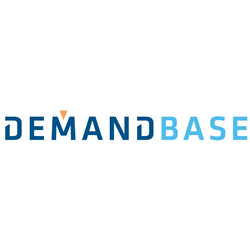


On Marketing Technology
MTS: Tell us a little bit about your role at Demandbase and how you got here.
I started at Demandbase as Chief Marketing Officer (CMO) in 2014, prior to which I served as CMO at Castlight Health, where I helped scale the company and build the marketing team in advance of an IPO. I’ve also held leadership positions at Microstrategy and Adobe. I started my career at New York advertising agencies Saatchi and Saatchi and Ammirati Puris Lintas, where I worked on accounts ranging from Procter & Gamble to Compaq computers.
At Demandbase, I’m responsible for the overall marketing strategy and execution, including product, corporate and field marketing. I’ve acted as a driving force for our world-class Account-Based Marketing program and applied those strategies internally to unite Demandbase’s sales and marketing teams toward a shared set of goals.
MTS: Given how quickly account based marketing strategies have been adopted, how do you see this segment evolving over the next few years?
Account-Based Marketing (ABM) is a relatively new category and we’ve seen a surge in interest and adoption. Over the past few years, the focus has shifted from B2B marketers asking the question “what is ABM?” to “How can I better implement ABM?” The structure of marketing departments has also shifted, moving from one person doing part-time ABM to having several people across an organization collaborating across programs.
The next few years will see advances in data quality and artificial intelligence (AI) that combined with ABM will drive even more value for B2B marketers. ABM and AI will improve marketers’ ability to identify the right companies to target and execute hyper-personalized programs. The combination of ABM and AI will give marketers the ability to deliver the one thing all marketers crave: a personalized, one-to-one customer experience—at scale.
MTS: What do you see as the single most important technology trend or development that’s going to impact us?
Artificial intelligence (AI) will continue to upend our B2B world in ways than once seemed impossible. Recently, we conducted a survey of 500 B2B marketers in conjunction with Wakefield Research, and the results revealed that 80 percent of marketing executives anticipate AI would revolutionize marketing by 2020.
The true value of AI lies in its ability to help marketers construct one-to-one personalized conversations – something that has become increasingly important as technology has created more complex buyer journeys, and a bigger gap between companies and prospects. AI is already allowing B2B marketers to convert data, into insights, into automated actions. And this last part is key, because insights don’t help us if we’re not able to act on them at scale- through advertising, on your website, or with your sales team.
AI adoption is in its early stages, with only 26 percent of marketers confident they understand how to use AI in marketing. AI has yet to reach its full potential, but we are on the right track, and there’s no doubt that AI will transform B2B marketing.
MTS: What’s the biggest challenge for startups to integrate an ABM platform into their stack?
The biggest challenge to practicing ABM successfully – across companies of all sizes – is in gaining alignment across your company and getting sales and marketing on board and collaborating. It’s essential that all teams involved coordinate programs across target accounts and that metrics are agreed upon prior to moving forward with any ABM program.
ABM can be effective for most B2B companies, but startups will need to consider their audience and deal sizes. ABM is about being laser focused on specific target accounts, so organizations that have a broader focus or small deals usually do better with horizontal sales and marketing efforts.
MTS: What startups are you watching/keen on right now?
We always have an eye on the latest in marketing technology, as well as in data science and AI/machine learning. We really like what Qubole, Optimizely, Bizible, and Allocadia are doing.
MTS: What tools does your marketing stack consist of in 2017?
We tend to be technology omnivores. We try to test and use a broad array of technology- first to see what is out there to help us achieve our business goals. But this approach also helps us in conversations with our customers, who are also trying to evaluate new technology to onboard.
We certainly use our own ABM tools for advertising, marketing, sales and analytics. Eloqua and Salesforce are foundational tools for our stack, with Bizible, Allocadia, TrendKite, Dynamic Signal and Lookbook HQ and others playing important roles.
MTS: Could you tell us about a standout digital campaign? (Who was your target audience and how did you measure success)
Almost everything we do is account based, and the foundation for all of our digital campaigns is Account-Based Advertising and Website Personalization, both from Demandbase. And our most successful campaigns typically include those, but also offline channels. We recently did a prospect campaign against enterprise accounts which also included a direct mail component, personalized landing pages and coordinated follow up from our sales development rep (SDR) team. We blew away our forecast for the campaign, getting a 31 percent conversion rate to pipeline opportunities.
MTS: How do you prepare for an AI-centric world as a marketing leader?
AI is definitely the shiny object that everyone seems to be talking about. But it’s important to remember that it’s just an enabling technology. It’s what you do with it that can make AI so transformational. In terms of preparation, companies should know what questions to ask, in order to separate out the companies who have real, AI-powered solutions from the pretenders. First, what data is feeding your AI engine and where are you getting it? AI works best when synthesizing massive amounts of data. Just tapping into your marketing automation or CRM database isn’t enough. And second, what actions are being triggered by AI? Unless the AI data and insights are automating specific actions, such as hyper targeted advertising, or content recommendations on your site, then you won’t realize much value from AI.
This Is How I Work
MTS: One word that best describes how you work:
Caffeinated
MTS: What apps/software/tools can you not live without?
Waze (for commuting), Pandora, Google Maps, Vivino (take a picture of a wine’s label and it tells you the price), Nike Running, Politico, CBS Sports.
MTS: What’s your smartest work related shortcut or productivity hack?
Scheduling 45 minute meetings. If you’re done in 30, you have 30 minutes of free time; if you go over, you don’t miss your next meeting; and if you’re right on time, you have 15 minutes to refuel and reset before your next meeting.
MTS: What are you currently reading? (What do you read, and how do you consume information?)
Right now I’m reading “The War that Ended Peace”, about World War I. I lean toward non-fiction, but my books before that were “The Buried Giant” by Kaz Ishiguro, and ‘When Breath Becomes Air” by Paul Kalinithi. I’m also a political junkie, which is too bad, because not much is happening in politics right now. But I read Politico, Slate, WSJ, NY Times and whatever pops up in my Twitter feed.
MTS: What’s the best advice you’ve ever received?
There were two pieces of advice:
1) Go into advertising, and then 10 years later,
2) Get out of advertising.
MTS: Something you do better than others – the secret of your success?
Some people know a lot about a lot, some people know a lot about a little, I know a little about a lot. Translation, I’m pretty good at trivia.
MTS: Tag the one person whose answers to these questions you would love to read
Alison Wagonfeld– CMO of Google Cloud
MTS: Thank you Peter! That was fun and hope to see you back on MarTech Series soon.
Peter is senior executive with 25 years of marketing experience. Currently the CMO of Demandbase, a B2B marketing technology company focused on advertising and website personalization. Demandbase makes it possible for businesses to deliver personalized ads to people at specific companies across the web, and then help tailor the messages on their website to convert these companies to customers.
Strong marketing background with experience across consumer and enterprise marketing, product and corporate strategy, and brand strategy to demand generation programs.
Consistent focus on tying marketing strategies to revenue and business results. Deep experience with international marketing across Europe and Asia.
Specialties: Corporate and product strategy, demand generation, channel marketing, relationship marketing, enterprise marketing, vertical marketing, lead generation and management, advertising and branding.

Demandbase, the leader in Account-Based Marketing (ABM), offers the only end-to-end ABM platform — account identification, account-based advertising, B2B website personalization, account-based marketing automation, sales insights and integrations into CRM so that ABM results are optimized around sales activity.
The Demandbase B2B Marketing Cloud is the only subscription-based ad targeting and web personalization solution that let marketers connect campaigns directly to revenue. The B2B Marketing Cloud is powered by patented technology, which allows companies to identify in real-time the accounts they value most and personalize their digital marketing efforts to them.
Enterprise leaders and high-growth companies such as Adobe, GE, Salesforce.com, Oracle, Box, CSC, DocuSign, Dell and others use Demandbase to drive ABM and maximize their marketing performance.
The MTS Martech Interview Series is a fun Q&A style chat which we really enjoy doing with martech leaders. With inspiration from Lifehacker’s How I work interviews, the MarTech Series Interviews follows a two part format On Marketing Technology, and This Is How I Work. The format was chosen because when we decided to start an interview series with the biggest and brightest minds in martech – we wanted to get insight into two areas … one – their ideas on marketing tech and two – insights into the philosophy and methods that make these leaders tick.


